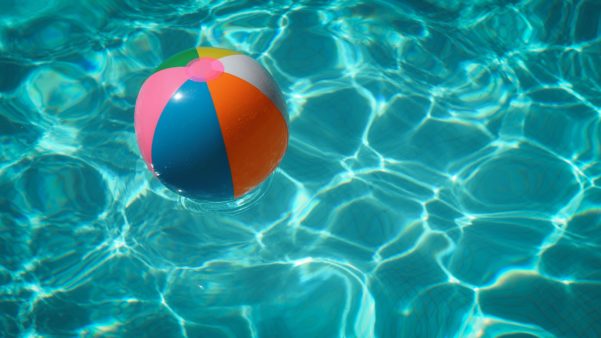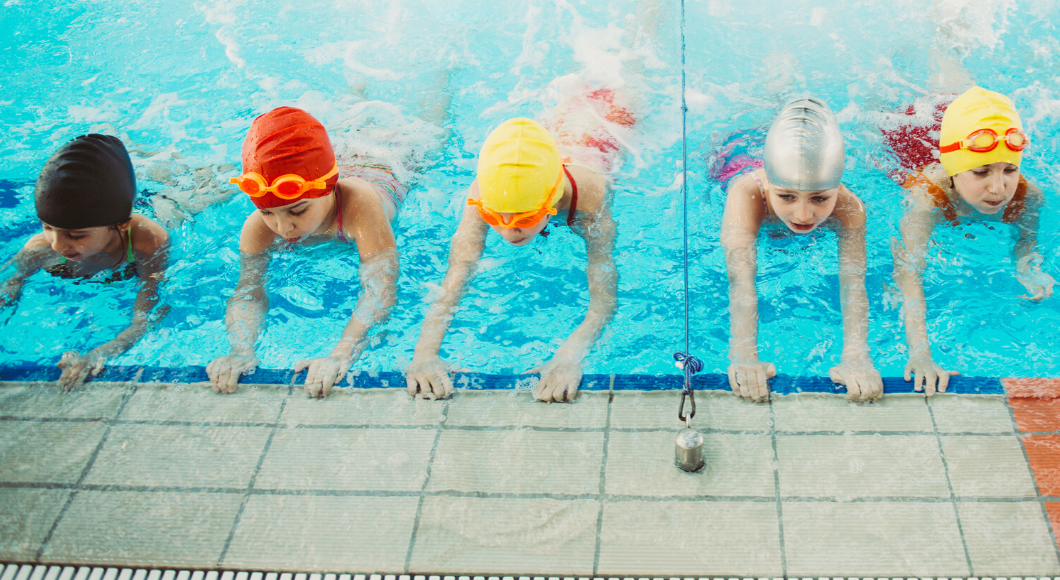The Texas summer heat often makes being outside almost unbearable. Indoor playspaces and icy treats may help you cool down but getting yourself and your kids in the water is by far the most effective way to beat the heat.
The water will keep you cool but the increased amount of people who take advantage of pools, lakes, and waterparks make summer the time when children are most likely to drown.
Brush up on water safety before diving in with a few tips.
Know, Follow, and Enforce Pool Rules
There are good rules of thumb to follow at the pool, regardless of whether it’s public or private. Public pools often have rules posted, but even if they don’t, you can stay safe by making sure your family follows common sense rules such as:
- Walk — don’t run — around the pool.
- Don’t dive in shallow water or water of an unknown depth.
- When playing, do not jump on other people or hold them underwater.
- NEVER swim alone.
- If you hear thunder or see lightning, wait 30 minutes before swimming.
- Don’t drink the water.
>> RECOMMENDED RESOURCE :: A Guide to Pools, Splash Pads, and Water Parks in the Fort Worth Area <<
Get Swimming Lessons
One of the very best ways to stay safe around water is to be a strong swimmer. Parents and children can benefit from swimming lessons, and many opportunities are available in our area. From ages six months through seniors, you’re never too old or young to become a better swimmer!
 Don’t Rely on Floaties or Toys
Don’t Rely on Floaties or Toys
Floaties and inflatables are a great way to enjoy the water, but they do not protect children or adults who cannot swim. To keep weak swimmers safe in the pool, be sure to use U.S. Coast Guard-approved water safety devices and to follow the instructions when it comes to height, weight, and wear.
Be Aware of Your Own Abilities and Limitations
To be responsible for others in the water, you must be aware of your own abilities. There is a difference between being able to swim and being able to rescue a swimmer in distress. Think ahead about the steps you need to take if someone needs help. If you don’t feel able to help in the pool yourself, make sure there is a lifeguard nearby and be ready to get his or her attention.
In Groups, Designate at Least One Watcher
When there are lots of people “watching” the pool, often that means no one is really watching. Always designate at least one Watcher, even when lifeguards are present, and increase the number of designated Watchers as the number of people in the pool increase. Watchers must:
- Stay focused. Watchers cannot be distracted by their phones or other adults.
- Pay special attention to new or weak swimmers.
- Have a phone nearby to call for help.
- Never leave their post until they are replaced by another watcher.
Take Breaks
Kids may want to stay in the pool forever, but water and sun wear you out. Make sure to take frequent breaks while you are at the pool, getting everyone out to drink water, reapply sunscreen, and rest. Breaks every 30-45 minutes will help prevent kids (and parents) from getting overtired, making your time safer and more enjoyable.
>> RELATED READ :: We Beg You: Lifeguard Your Child Around Water <<
Enforcing water safety can be tough, especially when kids are young, tired, having fun, crying, happy, cranky, teens . . . . Okay, especially when kids are kids. However, taking steps to keep everyone safe can prevent accidents — both small and big — and let everyone have fun in the sun.














